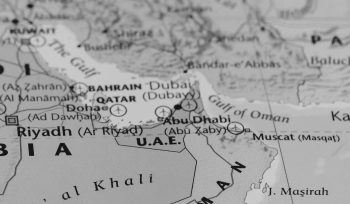The UAE-Austria trade corridor grew nearly 16 percent in 2025, and with EU-UAE CEPA negotiations advancing, DACH companies have good reason to reassess their Gulf strategy.
The UAE is forecast to grow 5.6% in 2026, nearly four times the rate of advanced economies, and here is what that means for businesses on the ground.
The UAE government is running E-Invoicing awareness sessions as the rollout approaches.
Discover what the CBUAE's decision to maintain the Base Rate at 3.65% means for UAE businesses.
-
13 Feb 2026 TaxUAE Ministry of Finance Designates VARA as Competent Authority Under CIT Framework
-
13 Feb 2026 TaxUAE Cabinet Decision Exempts Certain Sports Entities from Corporate Income Tax
-
13 Feb 2026 TaxUAE Issues Cabinet Decision on Exchange of Tax Information
-
06 Feb 2026 DubaiUAE Non-Oil Trade Crosses AED 3.8 Trillion
-
06 Feb 2026 DubaiUAE and Austria Strengthen Trade Ties
At Davos 2026, the UAE outlined its economic priorities through AI partnerships and trade expansion.
The UAE Golden Visa offers 10-year residency through property, bank deposit, or employment, with family sponsorship included.
What the new IFZA Advisory Board means for DACH businesses considering Dubai company setup.
Dubai's property market closed 2025 with AED 917 billion in transactions across 270,000 deals, a 20% year-on-year increase and the strongest performance on record.
Dubai recorded its highest-ever annual trade value, with exports and re-exports reaching AED356.5 billion.
The UAE's MENAFATF presidency means tighter enforcement of compliance ahead, so review your UBO records, internal policies, and documentation now.
Cities that reduce friction for founders are becoming more competitive globally.
GCC trade is on the rise, and Dubai remains the best place to be at the centre of it.
The UAE now hosts more than 1.4 million companies, as new amendments to the Commercial Companies Law introduce greater flexibility for business owners.





